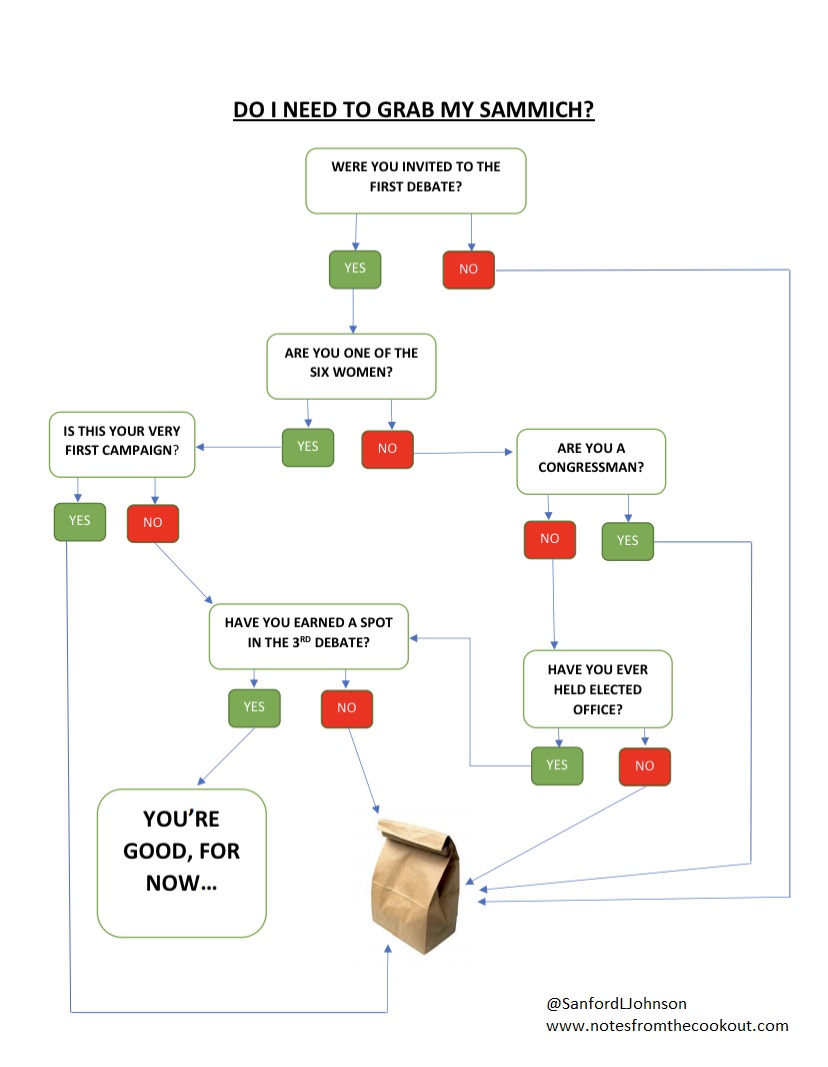In this week’s episode of About South, we present the second half of our two-part conversation with policy advocate and longtime friend Sanford Johnson. We cover a wide variety of Mississippi-related topics, including the Jackson ICE raids, the 2020 election, and the defacing of the Emmett Till historical marker.
The Tallahatchie River where Till’s body was found. Photo credit: M. Susan Orr-Klopfer via Wikimedia Commons
But first, we pick up where we left off -- with the obstacles facing the Mississippi education system. Sanford wants to see the people of Mississippi engaged, aware, and holding lawmakers accountable for their shortcomings; he uses the state’s lack of a fully-funded school system as one example wherein elected officials certainly fail their constituents, particularly those groups that are most in need of resources--low income, ESL, high school, and gifted students suffer significantly more from an underfunded school system than their peers, and yet loopholes persist that allow higher income areas to keep more funding than they need, despite the promises of lawmakers. Ensuring that elected officials suffer the political consequences for their open neglect and indifference means change can occur for the state of Mississippi, and there is hope on the horizon--we’ll get to that shortly.
Before we do, we discuss the recent suspension of three University of Mississippi students who were photographed posing with rifles in front of a bullet-riddled Emmett Till historical marker. Bullethole vandalism is a gruesome and continuing recurrence for the monument, a symptom of institutional racism still very much alive in present-day Mississippi. “We’re not being deliberate enough in making sure that we’re building inclusive spaces,” Sanford says. “[We need to] talk about what it means to be in a place of diversity, what it means to treat people who may not look like you with respect, what it means to understand the history of the place you’re in and understand your role in the history around you. There are certain things you just don’t do.” In the age of Trumpism, wherein such individuals feel emboldened enough to commit acts of terroristic racism more openly and frequently than in recent decades, we must decide what kind of country we want to be going forward -- do we want to be a multicultural, affirming, welcoming place, Sanford asks. Or will we revert to an era of white supremacy? Unfortunately, there still exists a segment American society that wishes to see that backward vision of the United States come to fruition.
Headlines about the vandalism by the University of Mississippi students made national news.
And speaking of Trumpism, the ICE raids in Jackson, Miss. are still fresh on everyone’s mind. Though Sanford can’t say for sure why Jackson was selected by ICE, he does know that a pattern is emerging regarding the jobs these deported immigrants leave behind. These positions were once filled by black Americans, who worked in grueling conditions for poor wages to provide cheap labor to big businesses. When a demand for better compensation and fair labor practices arose, rather than comply, businesses sought out another group to exploit. Now that that group is being forced out, Sanford again asks what kind of country we want to be going forward. Will we improve wages and working conditions? Or will we simply find another group to exploit?
Nearly 700 undocumented workers taken into custody across central Mississippi. Subscribe to WAPT on YouTube now for more: http://bit.ly/1hYcJNa
But again, there is hope on the horizon. A competitive 2020 Democratic race is in the works, and with plenty of decent candidates to choose from, the possibility of positive change is stronger now than in years before. Though it’s easy to become confused with the sheer number of aspirants who have come out of the woodwork to run for office, Sanford keeps a handy series going on Facebook to cut through the chaos; he often likens the Democratic race for the presidency to a family cookout, where some candidates sit in the dining room, some sit on the floor at the coffee table, some sit outside in the yard, and some probably just need to take their sandwich bag and go. Whichever candidate we choose, these conversations need to continue -- if not for our own entertainment, then for the discourse surrounding diversity, progressivism, and representation in our politics. Follow his commentary at “Notes From the Cookout.”
Sanford’s helpful graphic for 2020 Democratic hopefuls.
For bonus clips of our conversation with Sanford Johnson (in what we’ve dubbed “the accidental Sanford and Caison Auburn football hour”), visit us here.


